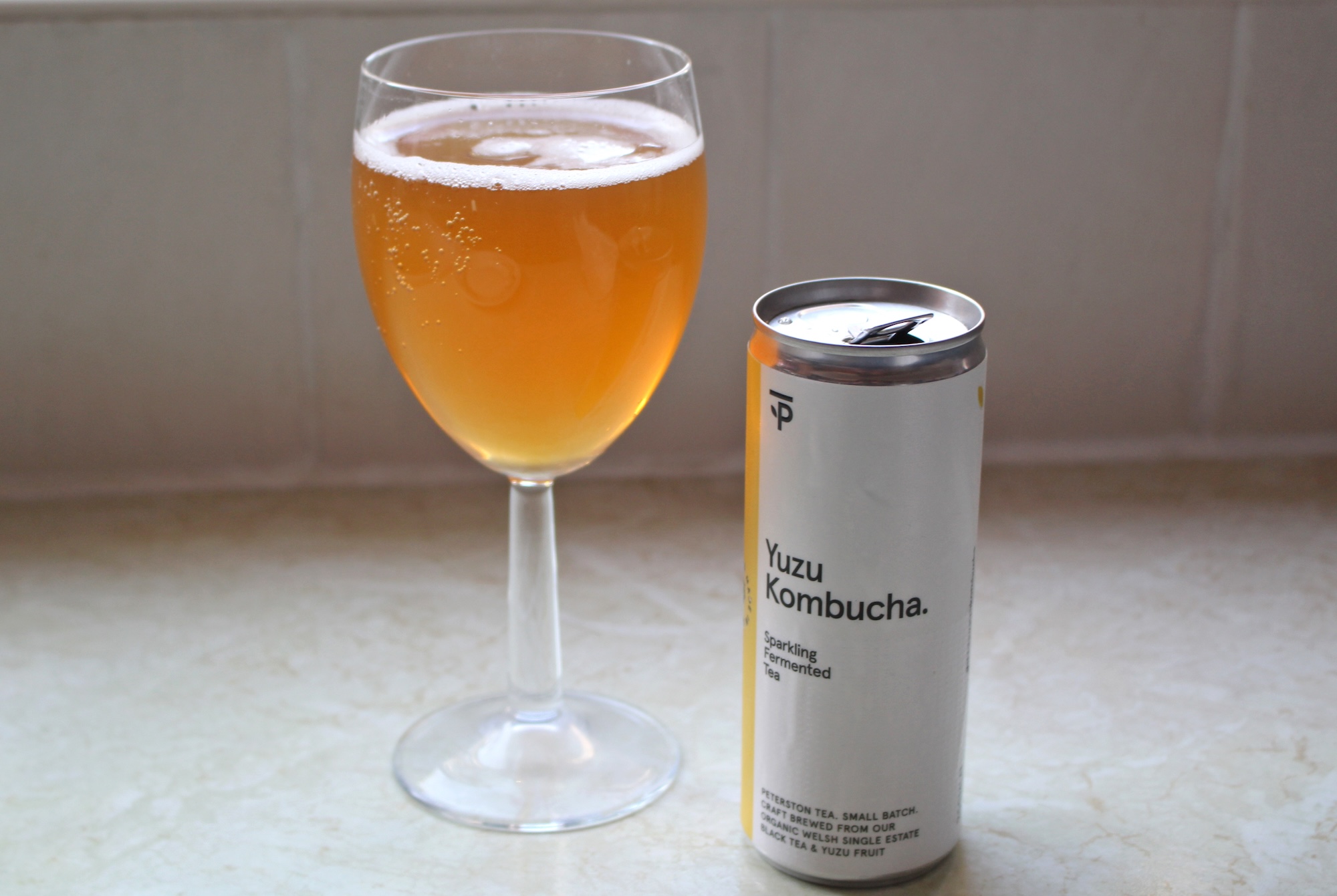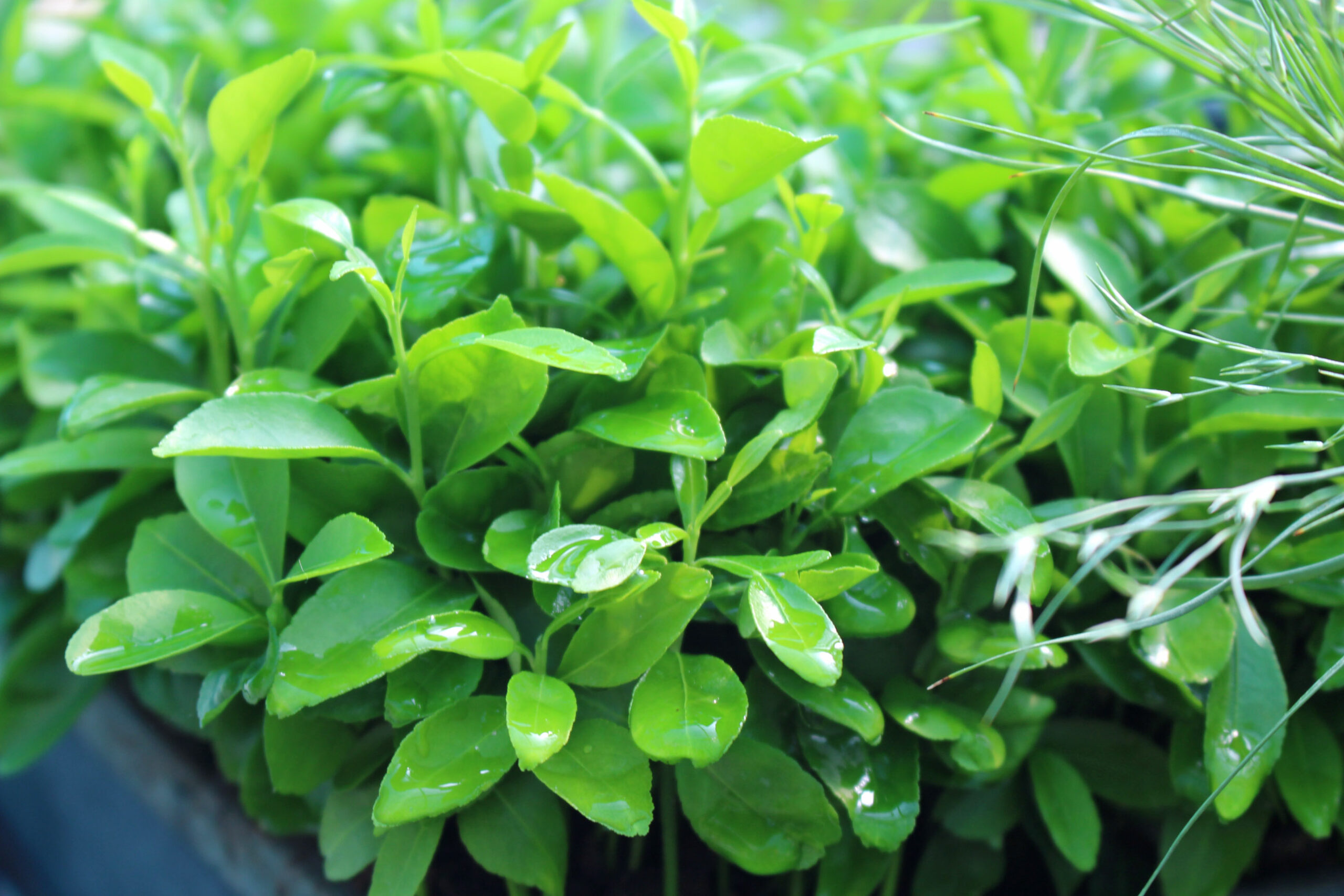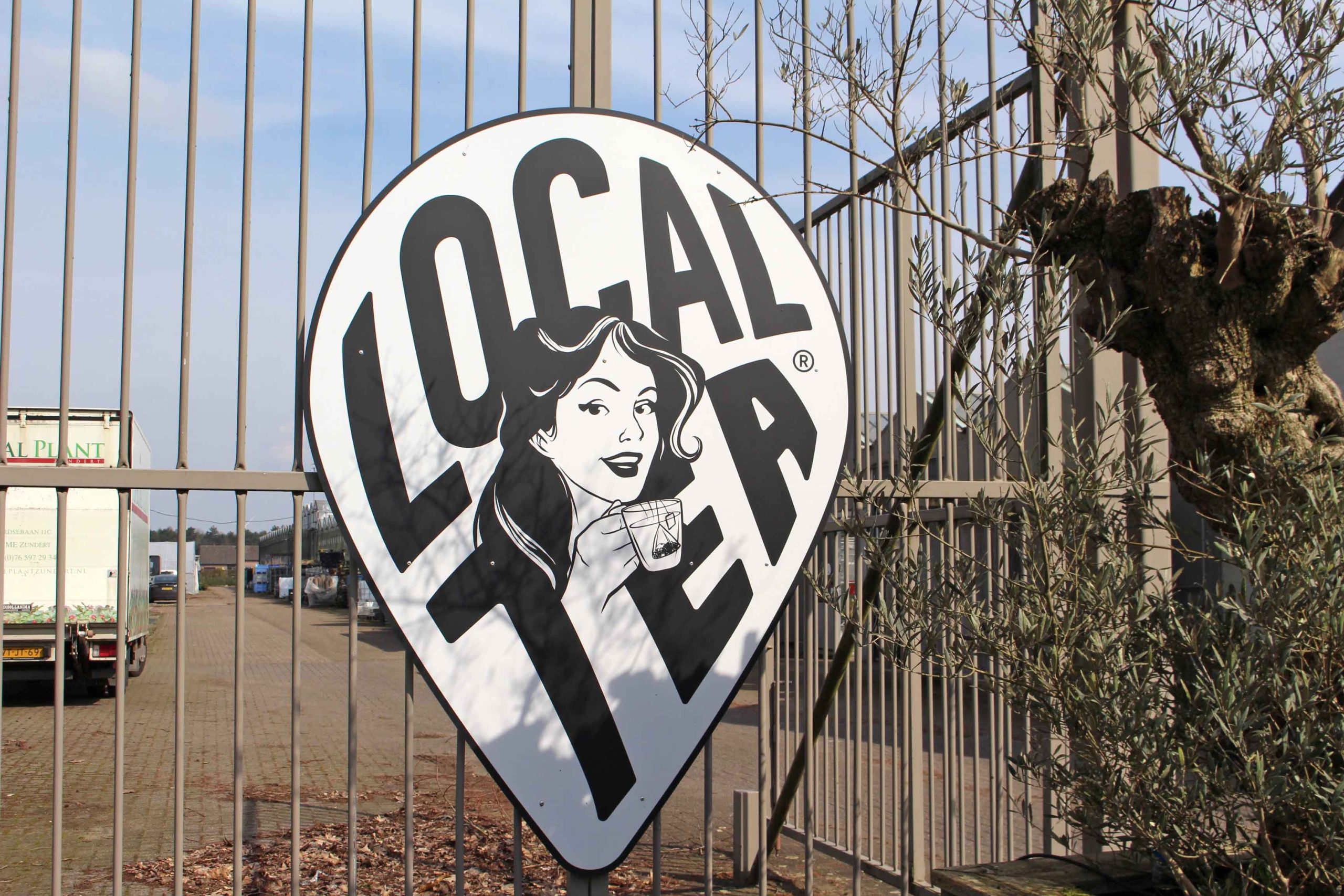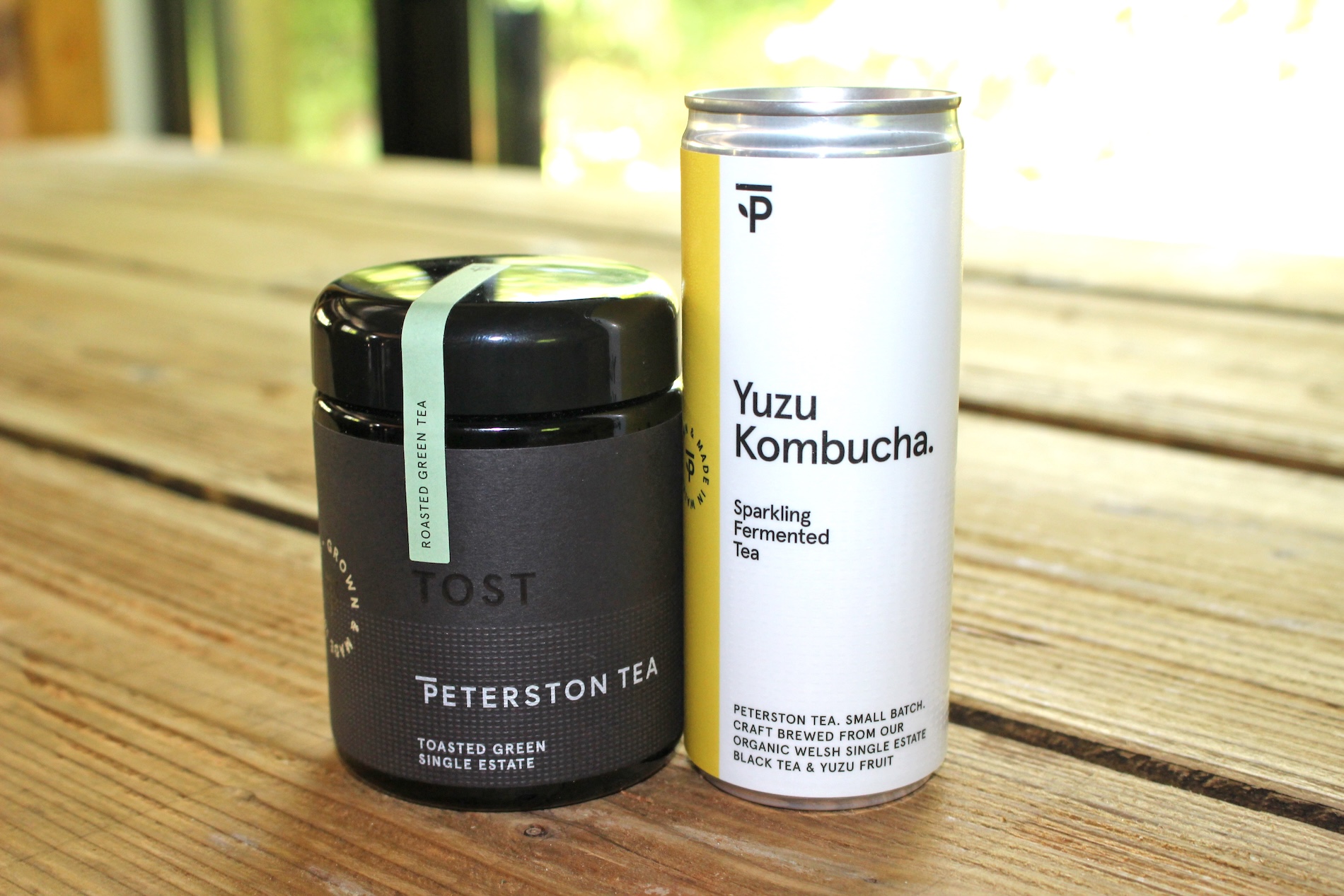
Tea Farmers & Tea Shops
Peterston Tea (Wales, UK)
CHAMART
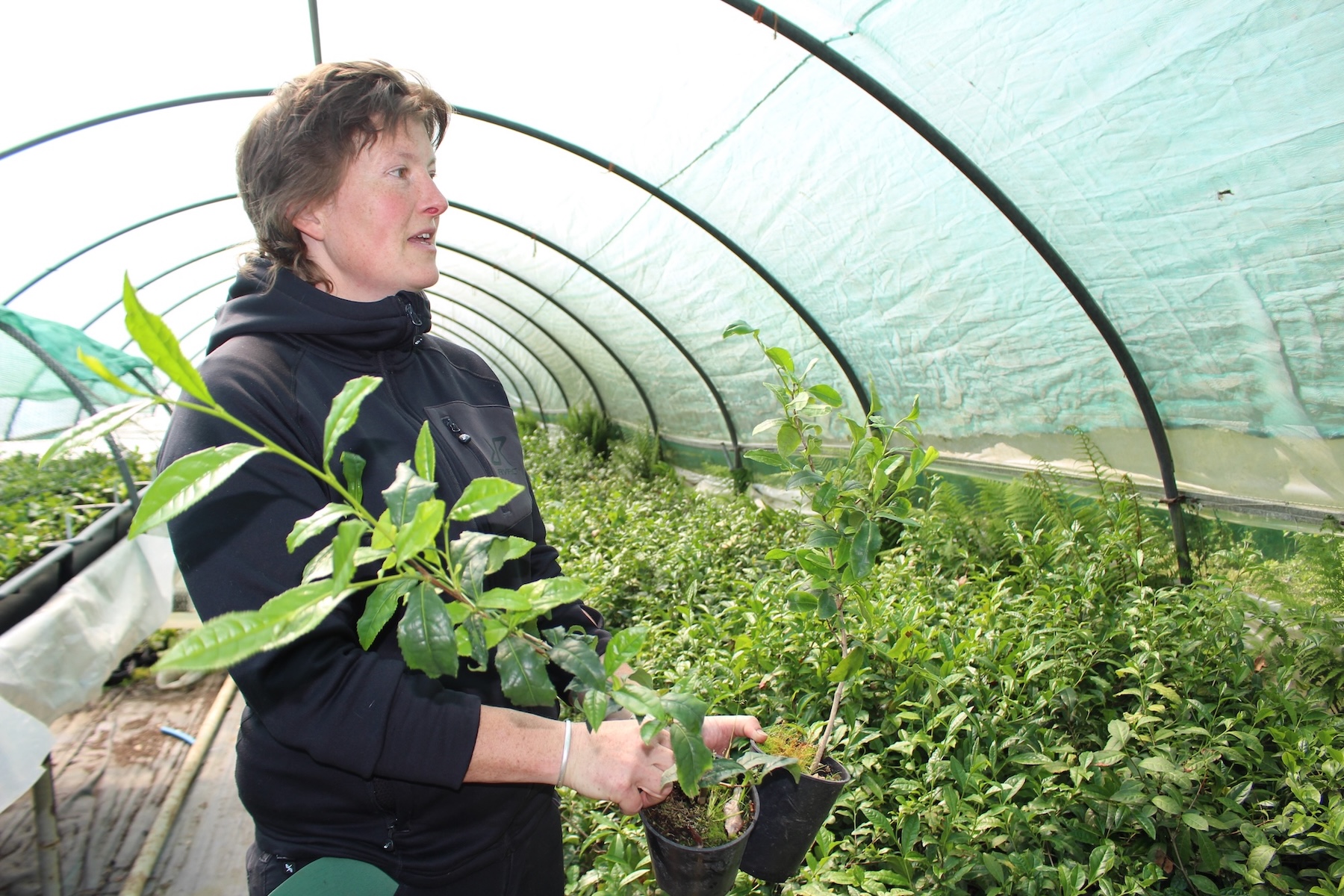
Lucy’s Challenge, from Fruit Farm to Tea Garden
In the UK, there are commercial tea gardens in England, Scotland, and Wales.
Peterston Tea is located in the Vale of Glamorgan, a nature-rich area in South Wales.
The ownder of Peterston Tea is Lucy George. She produces teas using the power of nature, without pesticides or chemical fertilizers.
Pan-fired and steamed green teas, black tea, and kombucha are available on the Peterston Tea website. These are organic, single-estate teas.
The garden also offers tea seeds and seedlings grown on-site, and hosts paid tea tours and tea-making workshops several times a year.
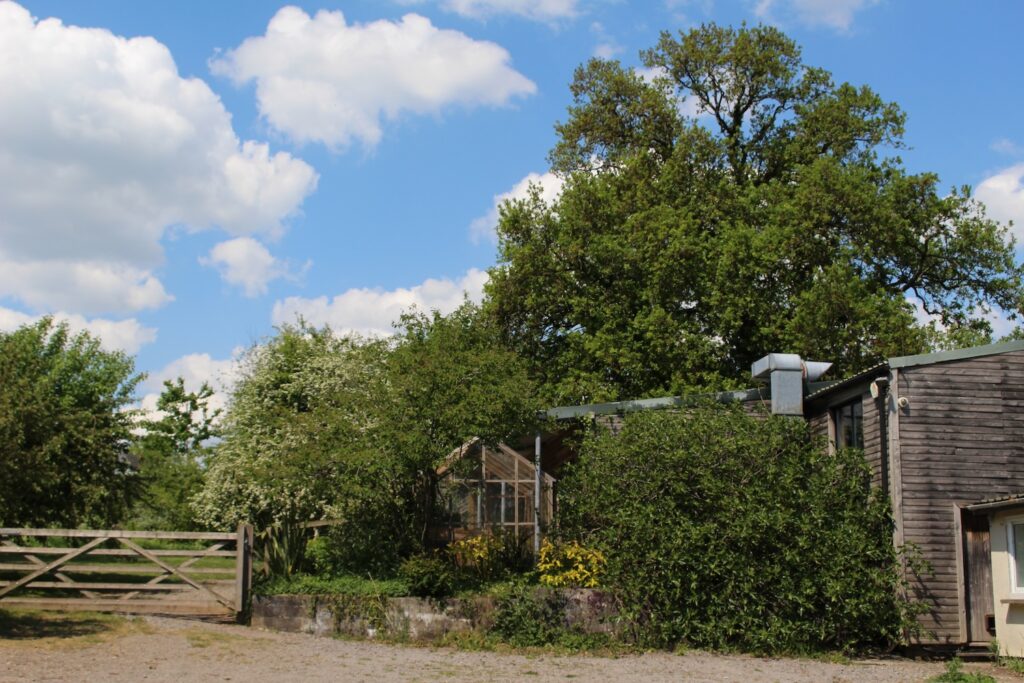
This tea garden was originally a fruit farm run by Lucy’s parents. After studying agriculture at university, Lucy took over the orchard in 2003 and began producing and selling ice cream made from the fruit grown there.
Although the ice cream business was doing well, Lucy began to feel the difficulties of marketing and running the fruit farm with several staff. She led a busy life, spending most of her day inside the ice cream factory.
Ten years later, she began to rethink her lifestyle, wanting to work outdoors and make a living through farming. That desire led her to tea—a promising cash crop. Through online research, she discovered that tea gardens existed in England and Scotland, and that there was a consultant specializing in tea. She reached out to the consultant.
With the support of the tea consultant, Lucy began working on growing tea in 2014. She studied at the UK Tea Academy and took part in training trips to Sri Lanka and India.
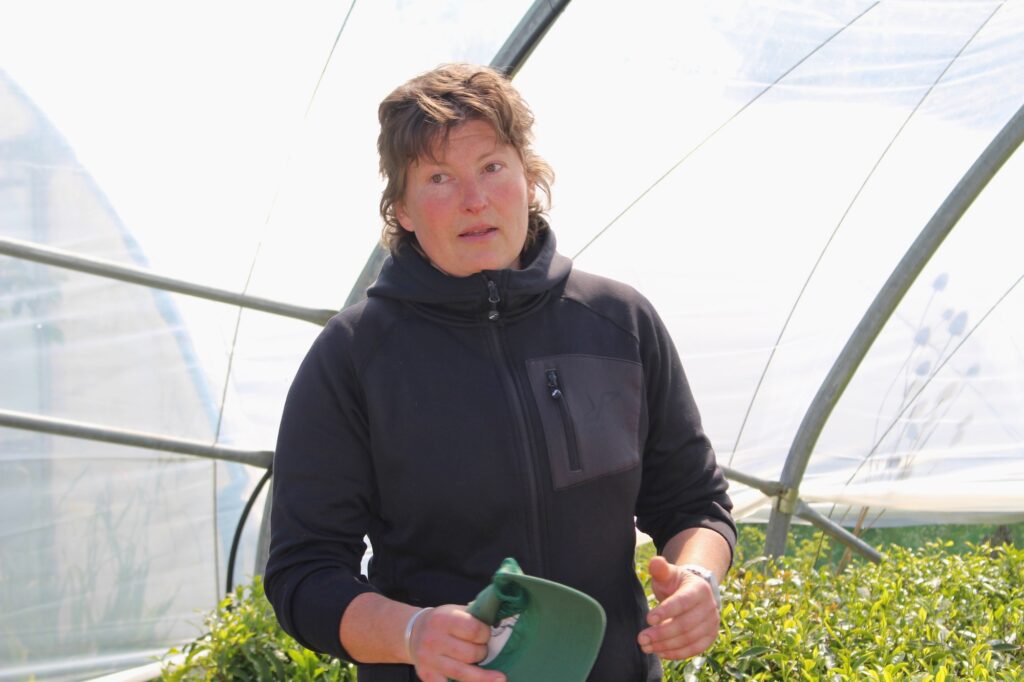
Growing Tea from Seeds
Lucy didn’t start by planting tea seedlings, but by sowing seeds. She wondered which region’s tea would best suit the Welsh climate. She planted seeds she bought from Georgia, Nepal, and India, and eventually discovered that tea from western India could thrive. Although many tea plants died, she managed to produce a small amount of tea for sale in 2019.
By 2025, the number of tea plants had grown to around 20,000, yielding an estimated total production of about 80kg.
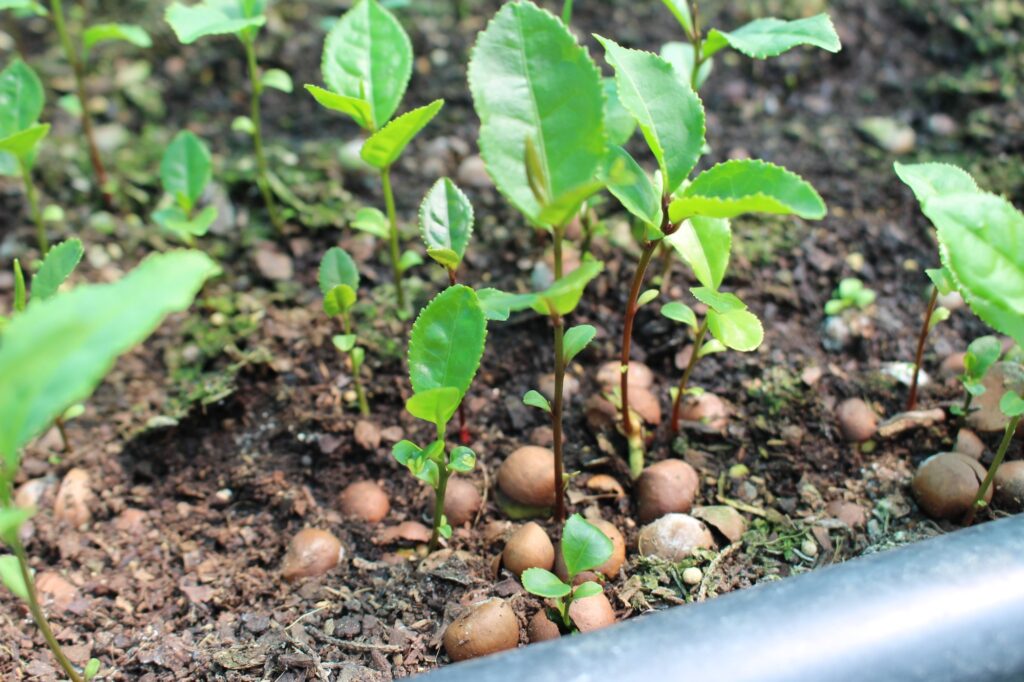
Growing Tea in Polytunnels
The tea plants are grown both outdoors and in a polytunnel – a simple, tunnel-shaped greenhouse covered with plastic film.
Lucy is committed to growing seedlings from seeds harvested on her own estate, rather than purchasing them. While one reason is to reduce costs, her main goal is to develop an original Peterston Tea variety that is well suited to the Welsh climate. Additionally, growing just one variety increases the risk that diseases will spread when they appear.
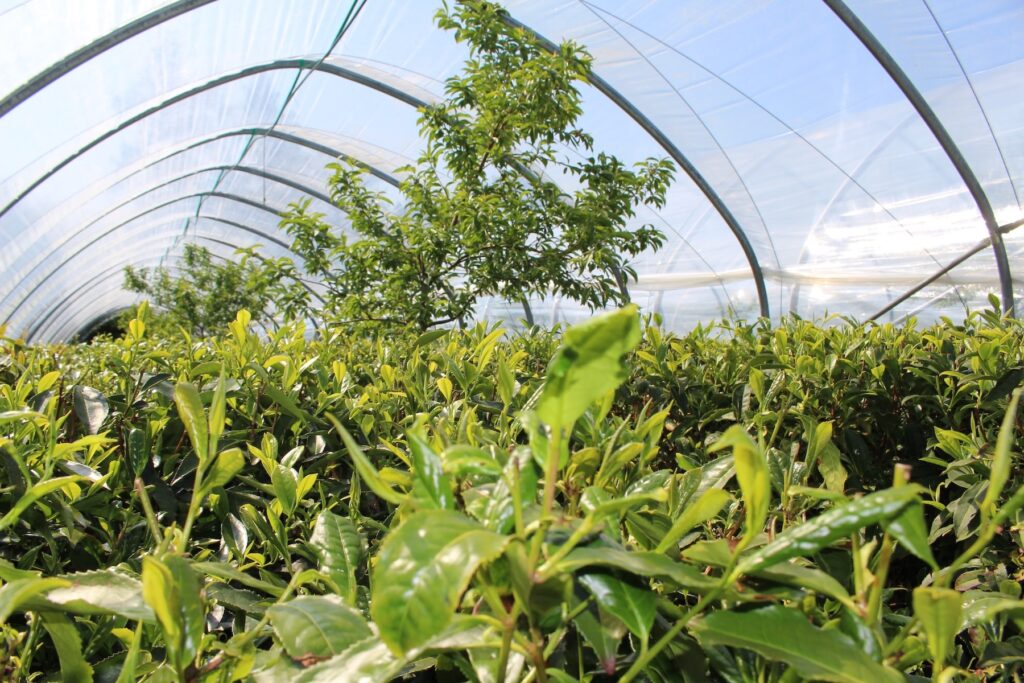
During the tea season, Lucy starts harvesting tea leaves by hand early in the morning and processes them in the afternoon. The leaves harvested from mid-April to mid-May are used to make green tea; those harvested in mid-July are made into both black and green tea; and the leaves harvested in September are used for black tea. She harvests tea leaves for kombucha using pruning shears.
On the premises, the tea factory has tea-processing machines, including a large roasting pan, small rolling machines, a dryer, etc. One of the rolling machines is made in Japan, while the rest are from China. All of the equipment was purchased with profits from the ice cream business.
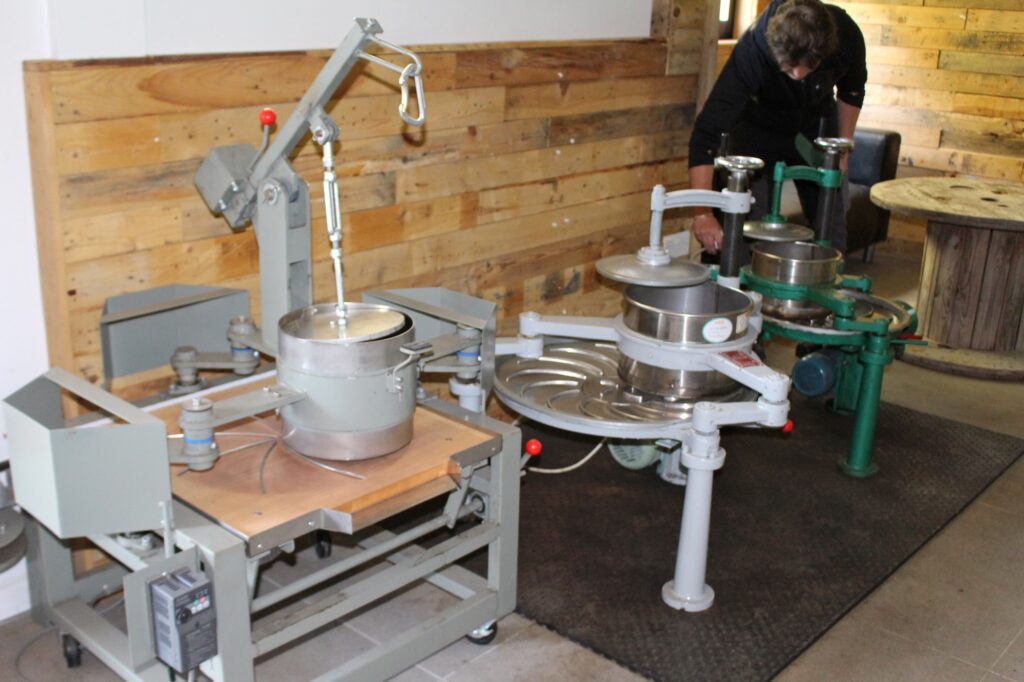
Agroforestry and Resilience in the Tea Garden
Winters in the Vale of Glamorgan are often windy, and temperatures can drop below freezing. Although it does snow, strong winds usually prevent it from accumulating. Even with rising temperatures due to global warming and the use of polytunnels, growing tea in the Welsh climate remains a challenge.
To address this, Lucy has introduced various strategies. In each polytunnel, she plants trees taller than the tea plants, such as apricot, peach, yuzu, and Sichuan pepper. Instead of a monoculture of tea, she practices agroforestry—an approach that involves intercropping multiple crops and trees—creating a small forest within the tea garden.
These trees help protect the tea plants from harsh sunlight and strong winds. Because the entrances of the polytunnel are always open, butterflies and other insects freely come and go. Their droppings enrich the tea garden’s soil by fostering microorganisms and fungi, creating fertile ground. In addition, natural pollination by insects produces seeds on the tea plants.
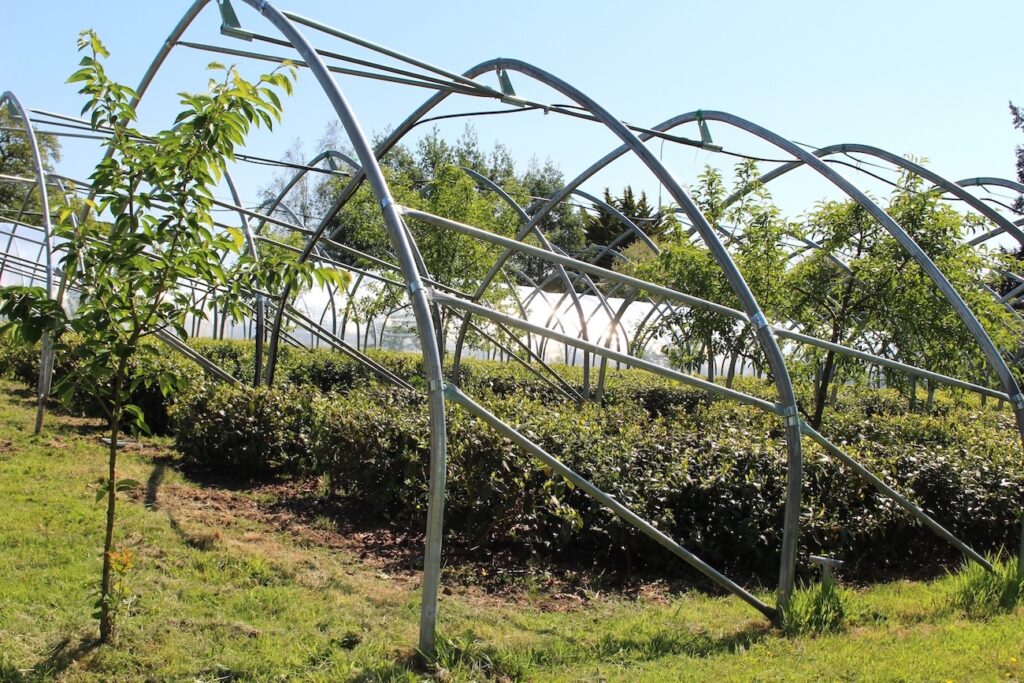
Since rainfall alone is not sufficient, an irrigation system has been installed to water the tea plants.
The tea garden is also home to dogs, sheep, and horses. Manure from the sheep and horses is used as fertilizer for the tea plants, and the animals themselves are a source of comfort and healing for Lucy.
The yuzu, which ripened in the tea garden, has its peel dried and used to flavor black tea.
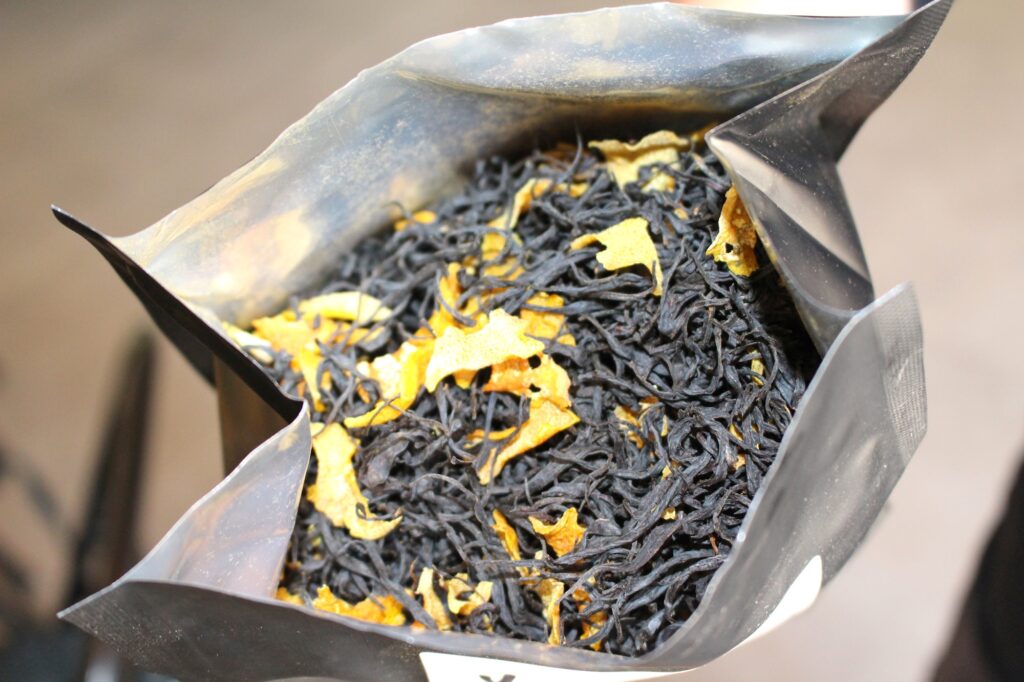
Spread of Lucy’s Tea
In the tea tour and tasting of 10 May 2025, the participants enjoyed pan-fired green tea and black tea, accompanied by Lucy’s homemade cake. The pan-fired green tea was hand-roasted by Lucy in a large pan. Its flavor is delicate and refreshing, similar to that of China’s Longjing tea. The black tea has a full body and a rich taste.
Most of the participants in the tour were residents of Wales, and they were surprised to find out that tea was being grown locally. They discovered the existence of this tea garden through features on the internet or television.
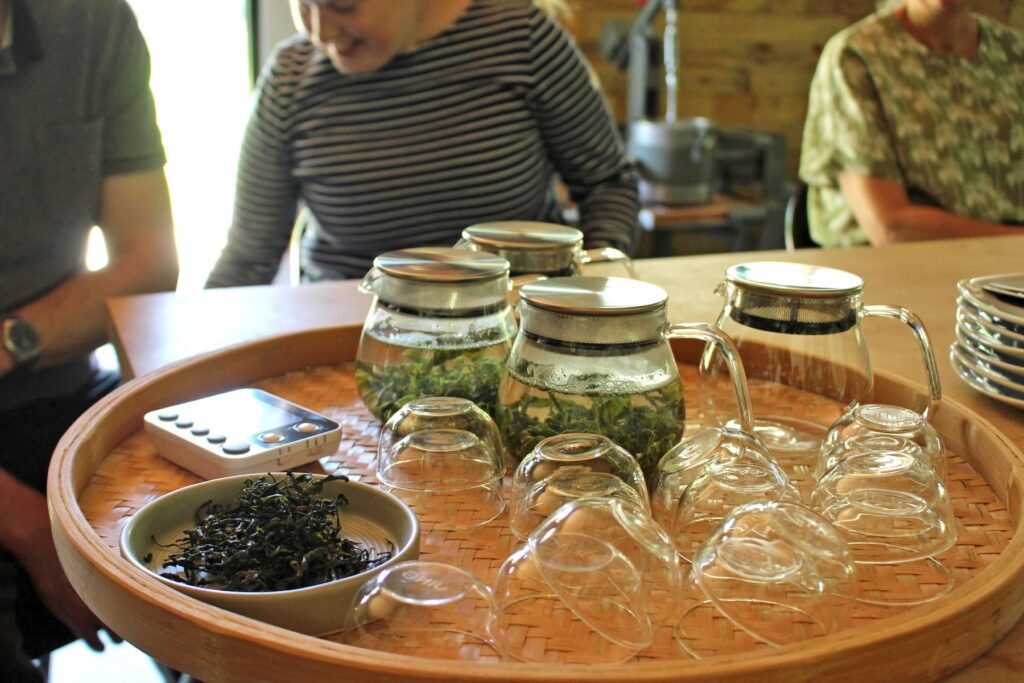
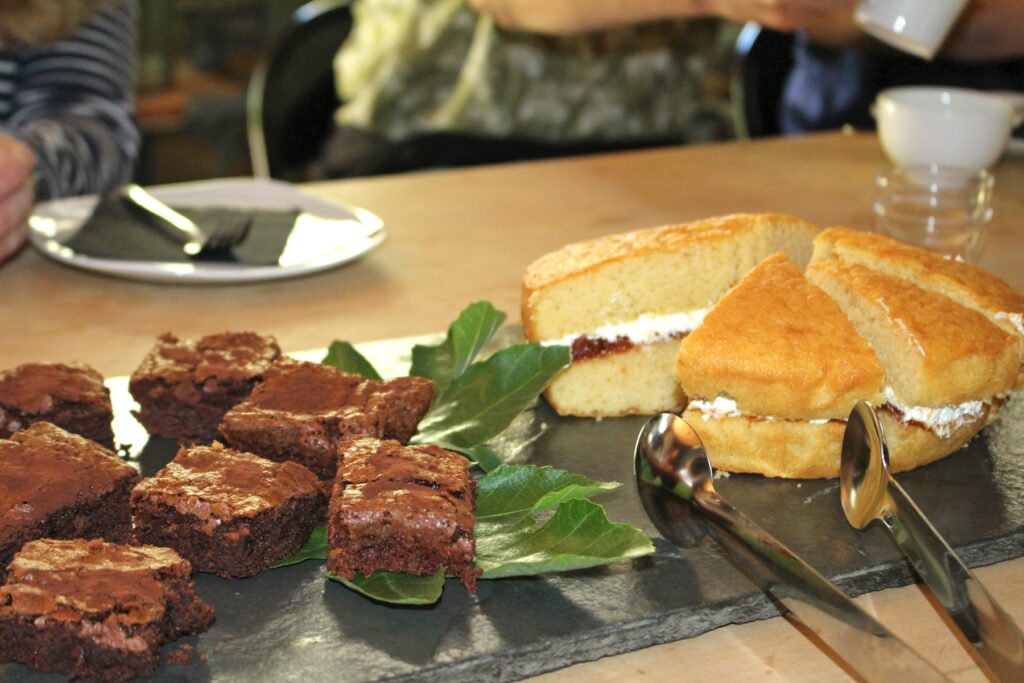
In 2022, Lucy’s tea was honored with the Pioneer Award at The Leafies, an international tea leaf competition launched by the UK Tea Academy in partnership with Fortnum & Mason. In 2023, she received the Best Food and Drink Producer in Wales Award at the BBC Food & Farming Awards, hosted in collaboration with BBC Cymru Wales.
In addition to media coverage, Lucy’s teas have spread by word of mouth and are now carried by luxury department stores and restaurants in the UK.
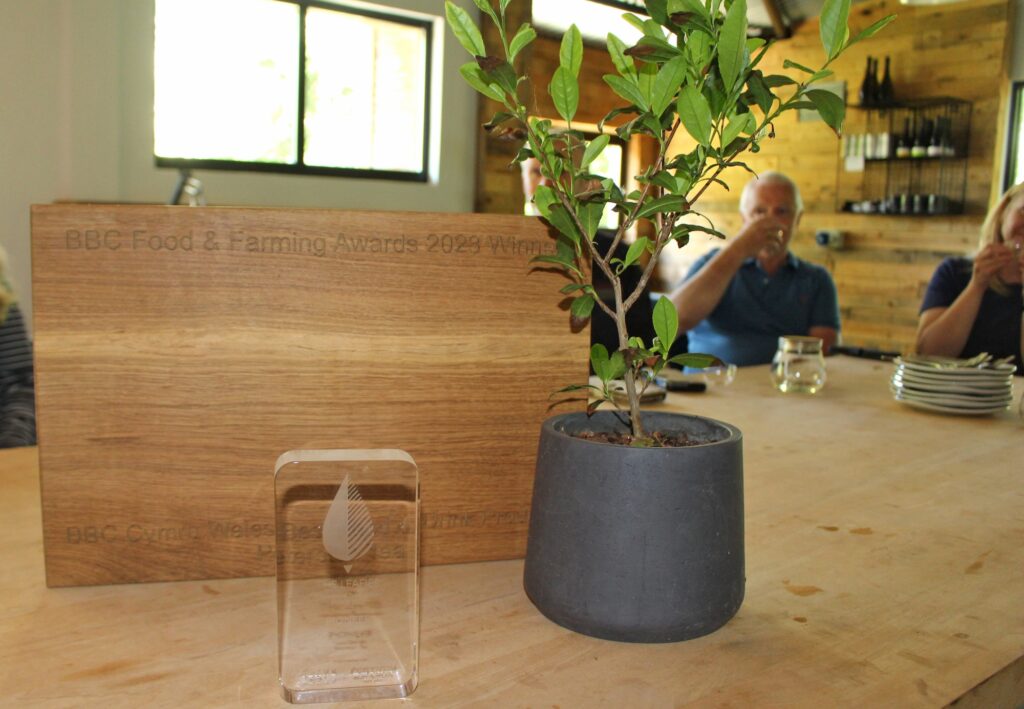
Lucy’s passion for tea
Lucy is a hard worker.
Although one part-time staff works at Peterston Tea, she handles most of the tasks herself, including operating a large tractor, assembling polytunnels, harvesting tea, and processing the leaves. During events such as tea garden tours, her mother comes to help.
One of the most demanding tasks in organic growing is weeding. Removing weeds and collecting seeds in the tea garden requires working in a crouched position, which can cause pain in the back and knees. Lucy has even injured herself during work.
Last year, she and the part-time staff collected around 25,000 seeds. Lucy works almost every day from before 7 a.m. until evening. She often gets so absorbed in her work that she forgets to eat lunch.
People around Lucy often suggest that she should hire more staff, but she prefers to work at her own pace and in her own way.
Lucy is exploring new approaches that make use of tea’s calming effects. This year, she collaborated with a local doctor to host a tea gathering for people in need of emotional support.
When asked where her passion for tea comes from, she smiled and said, “It might not be passion – it might be obsession. I want to produce good-quality tea.”
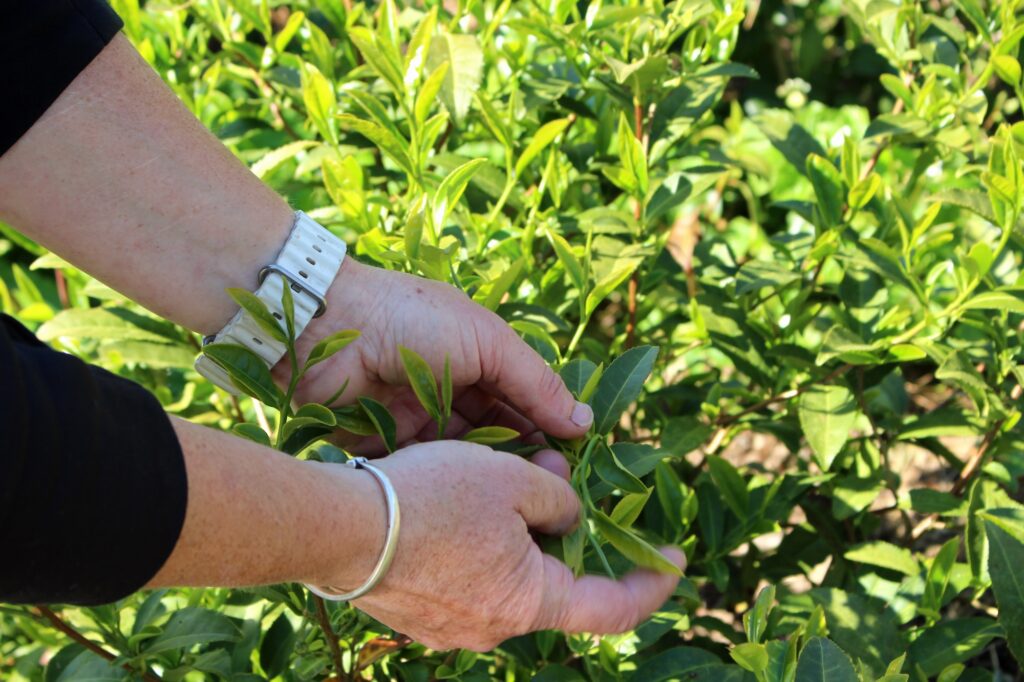
*When visiting the shops and facilities introduced in this article, please check the business hours on their website, etc. before visiting.
*The information provided on this site may be updated. If you find any information in this article that is incorrect, new, or incomplete, please contact CHAMART.
Peterston Tea https://peterstontea.com/

